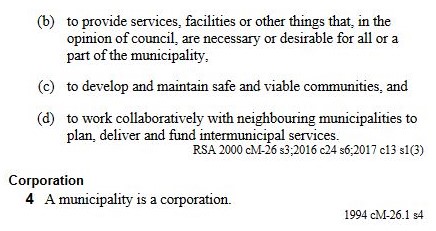In June of 2011, one year before I became the administrator for the Village of Milo, the Milo Sustainability Committee (a committee under the Milo & District Agricultural Society) did a presentation to Vulcan County Council. Barb Godkin, Michael Monner and myself were the Committee’s executive and many of our committee members showed their support by sitting in the gallery.
In our presentation we spoke about the reasons for forming our committee and the concerns we had about not attracting enough new residents to Vulcan County to maintain viability or, eventually, local schools.
On all sides Vulcan County is surrounded by regions with higher population and larger local economies. This remains so despite the fact that Vulcan County is sitting on prime real estate and has a central location in Southern Alberta.
In 2011 the Sustainability Committee believed that Vulcan County could take proactive steps that would move the ball forward on community growth and economic development. They requested that the County Council explore:
1.) Lobbying for legislative amendments that would empower communities to raise the funds necessary for community growth initiatives;
2.) Engineering and technical studies that would clarify inter-municipal utility servicing for water and wastewater in new development;
3.) Undertake a bylaw review of their Land Use Bylaw and Area Structure Plans to minimize impediments for investment by serious developers with a good reputation.
The Committee understood that a grassroots movement of concerned residents was necessary to steer local government in the right direction. They also understood that finding alternative funding sources other than the local ratepayer was critical.
Municipal corporations exist for the benefit of their residents. They are the enterprises that develop and maintain safe and viable communities. They grow their overall taxable assessment so that property taxes and service costs can remain affordable, so that local schools have enough kids to field a sports team, and so a hub for commercial activity is available to their community.
Our region has seven municipal corporations. In other words, we have seven points of leverage, not only with the Government of Alberta, but with each our historic communities to ensure that each of their priorities are identified and moved forward. Villages are viable on their own when their residents care to see them thrive, when they are run like a major corporation possessing millions of dollars worth of taxable assessment. They can be ideal partners with Vulcan County on regional economic development and community growth.
Over the last ten years, I have learned how municipal corporations operate, how villages operate, and what makes urban and rural municipalities distinct. With their unique mandates, our communities can flourish through meaningful inter-municipal collaboration. Vulcan County has a pretty remarkable history of limited local government working collectively. The twice-annual Communications Meetings between all seven jurisdictions is a regular demonstration of enormous good will.
Since June of 2011 I am happy to report that there has been progress on all three of the “requests” made by the Sustainability Committee, be it through a little good fortune but also perseverance and determination.
The Municipal Government Act was amended in 2017 to mandate collaboration between adjacent municipalities. This mandated Inter-municipal Development Plans and Inter-municipal Collaborative Frameworks.
These agreements, as arrived at in our region between Vulcan County and adjacent municipalities, have resulted in comprehensive planning documents. They contextualize existing forms of collaboration and agree, in principle, to the potential for more of it.
While these are essentially communication documents that define a corporate relationship, be it Vulcan County with the town or with the villages, they contemplate inter-municipal servicing, “Joint Development Areas,” and “Community Growth Initiatives.” These documents set out a “Co-ordinated Growth Management Strategy” affording clearer communication and co-operation between the municipalities on all aspects of economic development and community growth.
In 2020, the Village of Milo sponsored a grant application to the Alberta Community Partnership program, along with the Village of Arrowwood and Vulcan County, looking at regional servicing options for potable water. This study marks a significant first step in mapping out how inter-municipal servicing might be deployed in the northern and eastern sides of Vulcan County for long term economic development.
Vulcan County has recently completed a review of its McGregor Lake Area Structure Plan. It is ready, maybe more now than ever, to contemplate serious development opportunities while minimizing conflict with agriculture.
This is one story that has been ten years in the making, one story among others. There are other stories across our County about unique development opportunities building out year over year, about communities doing what they can to move the ball forward for future generations.
I believe I have the experience and the determination to see these efforts move from the planning stage to formal partnerships, partnerships that can make economic development and community growth take off.

